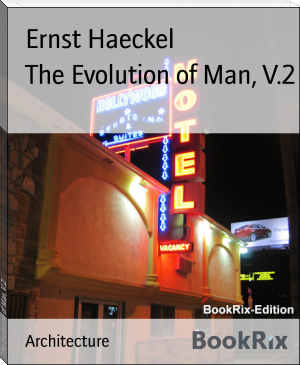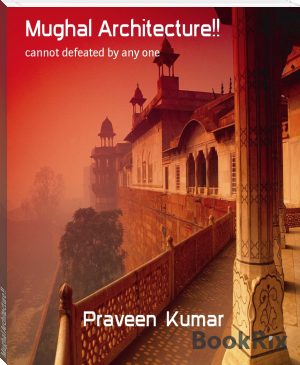The Brethren, H. Rider Haggard [ebooks that read to you .txt] 📗

- Author: H. Rider Haggard
Book online «The Brethren, H. Rider Haggard [ebooks that read to you .txt] 📗». Author H. Rider Haggard
"That must be as fate wills," answered Godwin, and they bowed and went.
Outside that gloomy place of death their swords were given them, and two good horses, which they mounted. Hence guides led them to the embassy from Jerusalem that was already in the saddle, who were very glad to welcome two such knights to their company. Then, having bid farewell to the bishop Egbert, who wept for joy at their escape, escorted for a while by Saladin's soldiers, they rode away from Ascalon at the fall of night.
Soon they had told each other all there was to tell. When he heard of the woe of Rosamund Wulf well-nigh shed tears.
"We have our lives," he said, "but how shall we save her? While Masouda stayed with her there was some hope, but now I can see none."
"There is none, except in God," answered Godwin, "Who can do all things--even free Rosamund and make her your wife. Also, if Masouda is at liberty, we shall hear from her ere long; so let us keep a good heart."
But though he spoke thus, the soul of Godwin was oppressed with a fear which he could not understand. It seemed as though some great terror came very close to him, or to one who was near and dear. Deeper and deeper he sank into that pit of dread of he knew not what, until at length he could have cried aloud, and his brow was bathed with a sweat of anguish. Wulf saw his face in the moonlight, and asked:
"What ails you, Godwin? Have you some secret wound?''
"Yes, brother," he answered, "a wound in my spirit. III fortune threatens us--great ill fortune."
"That is no new thing," said Wulf, "in this land of blood and sorrows. Let us meet it as we have met the rest."
"Alas! brother," exclaimed Godwin, "I fear that Rosamund is in sore danger--Rosamund or another."
"Then," answered Wulf, turning pale, "since we cannot, let us pray that some angel may deliver her."
"Ay," said Godwin, and as they rode through the desert sands beneath the silent stars, they prayed to the Blessed Mother, and to their saints, St. Peter and St. Chad--prayed with all their strength. Yet the prayer availed not. Sharper and sharper grew Godwin's agony, till, as the slow hours went by, his very soul reeled beneath this spiritual pain, and the death which he had escaped seemed a thing desirable.
The dawn was breaking, and at its first sign the escort of Saladin's soldiers had turned and left them, saying that now they were safe in their own country. All night they had ridden fast and far. The plain was behind them, and their road ran among hills. Suddenly it turned, and in the flaming lights of the new-born day showed them a sight so beautiful that for a moment all that little company drew rein to gaze. For yonder before them, though far away as yet, throned upon her hills, stood the holy city of Jerusalem. There were her walls and towers, and there, stained red as though with the blood of its worshippers, soared the great cross upon the mosque of Omar--that cross which was so soon to fall.
Yes, yonder was the city for which throughout the ages men had died by tens and hundreds of thousands, and still must die until the doom was done. Saladin had offered to spare her citizens if they consented to surrender, but they would not. This embassy had told him that they had sworn to perish with the holy Places, and now, looking at it in its splendour, they knew that the hour was near, and groaned aloud.
Godwin groaned also, but not for Jerusalem. Oh! now the last terror was upon him. Blackness surged round him, and in the blackness swords, and a sound as of a woman's voice murmuring his name. Clutching the pommel of his saddle, he swayed to and fro, till suddenly the anguish passed. A strange wind seemed to blow about him and lift his hair; a deep, unearthly peace sank into his spirit; the world seemed far away and heaven very near.
"It is over," he said to Wulf. "I fear that Rosamund is dead."
"If so, we must make haste to follow her," answered Wulf with a sob.
Chapter Twenty One(What Befell Godwin)
At the village of Bittir, some seven miles from Jerusalem, the embassy dismounted to rest, then again they pressed forward down the valley in the hope of reaching the Zion Gate before the mid-day heat was upon them. At the end of this valley swelled the shoulder of a hill whence the eye could command its length, and on the crest of that shoulder appeared suddenly a man and a woman, seated on beautiful horses. The company halted, fearing lest these might herald some attack and that the woman was a man disguised to deceive them. While they waited thus irresolute, the pair upon the hill turned their horses' heads, and notwithstanding its steepness, began to gallop towards them very swiftly. Wulf looked at them curiously and said to Godwin:
"Now I am put in mind of a certain ride which once we took outside the walls of Beirut. Almost could I think that yonder Arab was he who sat behind my saddle, and yonder woman she who rode with you, and that those two horses were Flame and Smoke reborn. Note their whirlwind pace, and strength, and stride."
Almost as he finished speaking the strangers pulled up their steeds in front of the company, to whom the man bowed his salutations. Then Godwin saw his face, and knew him at once as the old Arab called Son of the Sand, who had given them the horses Flame and Smoke.
"Sir," said the Arab to the leader of the embassy, "I have come to ask a favour of yonder knights who travel with you, which I think that they, who have ridden my horses, will not refuse me. This woman," and he pointed to the closely-veiled shape of his companion, "is a relative of mine whom I desire to deliver to friends in Jerusalem, but dare not do so myself because the hilldwellers between here and there are hostile to my tribe. She is of the Christian faith and no spy, but cannot speak your language. Within the south gate she will be met by her relatives. I have spoken."
"Let the knights settle it," said the commander, shrugging his shoulders impatiently and spurring his horse.
"Surely we will take her," said Godwin, "though what we shall do with her if her friends are wanting I do not know. Come, lady, ride between us."
She turned her head to the Arab as though in question, and he repeated the words, whereon she fell into the place that was shown to her between and a little behind the brethren.
"Perhaps," went on the Arab to Godwin, "by now you have learned more of our tongue than you knew when we met in past days at Beirut, and rode the mountain side on the good horses Flame and Smoke. Still, if so, I pray you of your knightly courtesy disturb not this woman with your words, nor ask her to unveil her face, since such is not the custom of her people. It is but an hour's journey to the city gate during which you will be troubled with her. This is the payment that I ask of you for the two good horses which, as I am told, bore you none so ill upon the Narrow Way and across plain and mountain when you fled from Sinan, also on the evil day of Hattin when you unhorsed Salah-ed-din and slew Hassan."
"It shall be as you wish," said Godwin; "and, Son of the Sand, we thank you for those horses."
"Good. When you want more, let it be known in the market places that you seek me," and he began to turn his horse's head.
"Stay," said Godwin. "What do you know of Masouda, your niece? Is she with you?"
"Nay," answered the Arab in a low voice, "but she bade me be in a certain garden of which you have heard, near Ascalon, at an appointed hour, to take her away, as she is leaving the camp of Salah-ed-din. So thither I go. Farewell." Then with a reverence to the veiled lady, he shook his reins and departed like an arrow by the road along which they had come.
Godwin gave a sigh of relief. If Masouda had appointed to meet her uncle the Arab, at least she must be safe. So it was no voice of hers which seemed to whisper his name in the darkness of the night when terror had ahold of him--terror, born perhaps of all that he had endured and the shadow of death through which he had so lately passed. Then he looked up, to find Wulf staring back at the woman behind him, and reproved him, saying that he must keep to the spirit of the bargain as well as to the letter, and that if he might not speak he must not look either.
"That is a pity," answered Wulf, "for though she is so tied up, she must be a tall and noble lady by the way she sits her horse. The horse, too, is noble, own cousin or brother to Smoke, I think. Perhaps she will sell it when we get to Jerusalem."
Then they rode on, and because they thought their honour in it, neither spoke nor looked more at the companion of this adventure, though, had they known it, she looked hard enough at them.
At length they reached the gate of Jerusalem, which was crowded with folk awaiting the return of their ambassadors. They all passed through, and the embassy was escorted thence by the chief people, most of the multitude following them to know if they brought peace or war.
Now Godwin and Wulf stared at each other, wondering whither they were to go and where to find the relatives of their veiled companion, of whom they saw nothing. Out of the street opened an archway, and beyond this archway was a garden, which seemed to be deserted. They rode into it to take counsel, and their companion followed, but, as always, a little behind them.
"Jerusalem is reached, and we must speak to her now," said Wulf, "if only to ask her whither she wishes to be taken.
Godwin nodded, and they wheeled their horses round.
"Lady," he said in Arabic, "we have fulfilled our charge. Be pleased to tell us where are those kindred to whom we must lead you."
"Here," answered a soft voice.
They stared about the deserted garden in which stones and sacks of earth had been stored ready for a siege, and finding no one, said:
"We do not see them."
Then the lady let slip her cloak, though not her veil revealing the robe beneath.
"By St. Peter!" said Godwin. "I know the broidery on that dress. Masouda! Say, is it you, Masouda?"
As he spoke the veil fell also, and lo! before them was a woman like to Masouda and yet not Masouda. The hair was dressed like hers; the ornaments and





Comments (0)